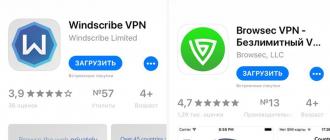A few days ago, a rather important event took place - in the first reading, the State Duma of the Russian Federation adopted a bill "banning anonymizers and VPN". After the introduction of the register of prohibited sites and the blocking of various resources, many wondered - how soon will the schemes bypass these blockings be banned? It turned out that it took not so much time - only some 5 years.
June 8, 2017 - it was on this day that it was officially decided to make the Runet a semblance of the Chinese network segment. Despite the fact that the law has not been formally adopted and a number of procedures must go through for its adoption, there is no doubt about the final result. Carthage will still be destroyed, and users who want something strange in the form of finding a job on LinkedIn or communicating with their clanmates on some MMORPG from South Korea in Line will not be able to do this if they want to. In general, remember this tweet (s).
So, what have the legislators prepared for us? They prepared us a bill for a couple of dozen pages entitled "On Amendments to the Federal Law" On Information, Information Technologies and Information Protection "". It was introduced by three deputies from different parties, but their and even party affiliation does not play any role. Recently, laws that, in one way or another, limit the network space, have been adopted almost unanimously.
It will take effect 90 days after its entry into force, so that a new reality after passing all 3 readings and the president's signature will come quickly enough.
How it will be
The bill introduces a new key article numbered into the law on information 15.8 ... Officially, the article bears the long and obscure title "Measures Aimed at Countering the Use of Information and Telecommunication Networks, Information Systems and Programs for Electronic Computers on the Territory of the Russian Federation to Access Information Resources, including networks "Internet", access to which on the territory of the Russian Federation is limited in accordance with this Federal Law ". In fact, this article describes exactly the prohibition of blocking bypass tools and how this prohibition is planned to be implemented. The article consists of 17 parts, written by a seasoned stationery, so without a bottle we cannot figure it out, we have simplified everything to the terms that are used in the industry.
The first part of the article right off the bat prohibits any service that operates in Russia from providing access to information that is prohibited in Russia in accordance with the law. In order to stop attempts to circumvent the bans, a number of new functions will be entrusted to Roskomnadzor:
First, the supervisory service will create and maintain a list of resources prohibited in the country. Note that such a list is already underway, so nothing has changed in this regard.
Secondly, Roskomnadzor will have to develop and approve a methodology in accordance with which it will monitor the network space in order to find services that offer the ability to access blocked resources.
Thirdly, having found such resources, Roskomnadzor will have to identify the hosting providers (or any other persons) who have hosted these resources.
Fourthly, after the definition of hosters, they are sent requests (in Russian and English) with the requirement to provide information that will help identify those who contain services to bypass blocking. What information is being discussed is not explained. Most likely, for individuals it will be the full name, address of residence and the like, and for legal entities - the name of the company, location, possibly bank details. The date of such a request will be fixed.
Here we digress a little and allow ourselves to note that if hosters in Russia have to fulfill all the requirements, then foreign hosters will hardly fulfill the requirements of Roskomnadzor like this. For it is one thing when companies themselves give their data to the register of organizers of information dissemination, and quite another when a hoster will have to give out their client's data to the government of other countries. In addition to the fact that such "openness" will lead to a catastrophic decline in reputation, the hoster will violate the law on personal data of his own country.
After the hoster has received the corresponding request, he provides Roskomnadzor with all the data requested by him within the next three days. After that, Roskomnadzor, on the basis of the data received, within three days sends a request to the block bypass services themselves, demanding that they stop violations and disable the ability to bypass blocking in Russia.
Having received the requirements of Roskomnadzor about the restriction, the services to bypass the locks on their own (options):
- Restrict access of all Internet users to their functions (voluntarily close, if in a simple way).
- Restrict access to their functions on the territory of Russia (they voluntarily ban on the Russian Internet, that is).
- They send an application to Roskomnadzor with a request to provide access to the register of prohibited sites and independently begin to block resources from this register.
What if we disagree?
If someone wants to show adherence to principles and refuses to comply with the requirements of Roskomndazor to block prohibited resources, then its end will be sad - he himself will be blocked on the territory of Russia in 30 days. Within 24 hours Roskomnadzor will send a message to telecom operators with a list of the "dissenting" addresses that need to be blocked. Operators, in turn, enter the addresses into the block list within 24 hours after receiving such a message.
In general, the standard blocking mechanism, only this time will have to block VPN services, anonymizers and other similar sites.
We already agree, what to do?
If someone at first wanted to show adherence to principles, but then realized that it was costing him too much, he can take measures to block prohibited sites and report this to Roskomnadzor. After that, Roskomnadzor checks the accuracy of the information within 24 hours, and, if the resources are indeed blocked, starts the unblocking procedure. During the day, telecom operators will be required to provide access to the "cut" VPN.
How will the interaction go?
The procedure for interacting with VPN services, anonymizers, technological networks and other resources that will block prohibited information is to be developed by Roskomnadzor. The supervisory service will be obliged to provide access to the list of prohibited information to everyone who agrees to its requirements in accordance with the developed interaction procedure. In turn, the resources themselves will have to block prohibited information, and observe this order of interaction.
Search engines

Separate parts of the article provide for the responsibilities of the search engine operator. He, like block bypass services, will have access to the list of blocked sites and will be obliged to exclude links to prohibited sites from search results. Interestingly, the punishment in the form of blocking for search engines has not yet been clearly spelled out - it only applies to services to bypass blocking. So Google will remain accessible, unless, of course, the norm is corrected. But instead of blocking the search engines, they prescribed fines. If the operator of the search engine does not filter search results, or did not want to get access to the register of prohibited sites, then this will entail the imposition of an administrative fine:
- for citizens in the amount of five thousand rubles;
- for officials - fifty thousand rubles;
- for legal entities - from five hundred thousand to seven hundred thousand rubles.
Work, and we will give you your salary with a VPN!
Apparently, having heeded the warnings that VPN is used not only to read and watch "prohibited", legislators have left the opportunity to use services for companies. They, as before, will be able to use their own technologies for bypassing access denials, but only in cases where users have entered into labor agreements with them.
So now, if you want to use some kind of VPN, you will not only have to pay for access, but also conclude an employment contract with its owner. This is a new kind of business. At the same time, unemployment will decrease.
Everything has already begun
Despite the fact that the prohibition of anonymizers and VPNs has yet to be introduced into the legal field, in fact, anonymizers have already been banned de facto. The prohibition mechanism is very simple - the prosecutor's office files a claim with the court, and the latter makes a decision to prohibit the anonymizer, since it can be used to gain access to prohibited information. On this basis, in 2016, "Chameleon", the Hideme.ru website and a number of others were blocked.
During the writing of the material, another piece of news came: Roskomnadzor, the Ministry of Internal Affairs, Rospotrebnadzor and the Federal Tax Service issued an interdepartmental order that allows you to block any means of bypassing locks without a court decision. The reasoning is also very simple - through these resources you can play in an illegal casino, which is prohibited on the territory of Russia. Officially, everything sounds like this:
The presence on the page of the site on the Internet and (or) a program for electronic computers that allows access to the site on the Internet, the page of the site on the Internet, which contains prohibited information that meets the criteria specified in paragraphs 4.1.1.-4.1.6 of these Criteria included in the Unified Register.
Naturally, everything that gives access to prohibited information, including VPN, falls under this description. Interestingly, the order itself was registered on June 27, and released on May 18. Considering that such documents are not prepared in a day, the decision to block the VPN was made much earlier.
A few days ago, the supervisory service sent out updated recommendations to telecom operators on blocking Internet resources. The recommendations do not differ in anything special from the old version, they only contain a mention of the preferred methods of blocking in the form of DPI, open source software and the purchase of already filtered traffic from an upstream provider.
Implications for the industry
For telecom operators, the changes will be minimal. Well, a few more addresses will be added to the blocking list, no big deal. There are thousands of them already. But for Runet, as a phenomenon, everything will be much more serious. In fact, a separate space is created, in which not only it is impossible to gain access to some resources, but it is impossible even to find out that these resources exist. Of course, you can argue that there are ordinary sites, forums, foreign versions of Google, where you can find information, links and distributions.
However, the logic of events is relentless - there should not be any prohibited information on the Runet. So the further, the poorer the Russian segment will be. One by one, foreign services will leave the market or be blocked. Just someone earlier (like Line or LinkedIn), someone later. The vacated places will start to be occupied by Russian services, which are now appearing like mushrooms after rain. We will keep silent about their quality - there is an excellent example of Sputnik, which, even with powerful competitors such as Google and Yandex, is something from the late 90s. Without the ability to fully interact with the world industry, Russian telecom and IT will degrade (even now, the successful "Kaspersky" is viewed with disapproval), and the further, the degradation rate will increase. After all, it's all some version of "Gwangmyeong".
On the other hand, in Africa there is no Internet at all, and no one really cares about it.
Access to websites prohibited in Russia. However, in fact, the VPN services themselves, as well as the anonymous Tor network, may be banned. found out why the state declared war on anonymity and how the law will operate.
What the law says
The law obliges the owners of special programs and applications to close access for Russians to websites prohibited in the country. The wording of the document is as vague as possible, so that all proxy and VPN services, special browser extensions, as well as the anonymous Tor network fall under its influence.
The management of the above services will be given access to the register of prohibited sites, and the implementation of the law will be monitored in and. If law enforcement officers notice that Russians are visiting prohibited resources through a specific application, they will report this to Roskomnadzor. He will demand to eliminate the violation, and in case of disobedience, he will block it.
In addition, the law obliges Internet service providers to contact the management of proxy and VPN services and require them to provide information that "allows them to identify [their] owners." In fact, this means that services will be required to issue registration data, that is, the address of the office and the location of the servers. Search engines will be prohibited from giving out links to prohibited resources.
The law does not apply to government agencies and departments, as well as to private companies if the means to bypass blocking are available only to their employees.
How Russia was preparing for the adoption of the law
For the first time it became known about the development of the bill in April. It was argued that the Security Council was interested in it, and Roskomnadzor and the lawyers of the Media Communications Union (MKS) were involved in the development, for whom the document became a chance to strike a new blow on pirated resources and torrent trackers.
Prior to this, Roskomnadzor was rumored to have tried to negotiate with VPN services on a voluntary restriction of access to prohibited resources. It is known that the department also negotiated with the developers of the Opera browser, whose Turbo mode allows you to automatically bypass blocking thanks to a built-in proxy.
Why VPNs and Tor will be hit
Almost all proxy and VPN services are foreign companies that rarely comply with the requirements of Russian legislation. They are unlikely to voluntarily monitor the register of prohibited Roskomnadzor sites and restrict access to them for Russian clients, and they are not too afraid of the threat of blocking in the country.

The situation with Tor is even more complicated: it is led by the Tor Project development team. Most of the project's employees consider themselves to be part of the so-called cypherpunk movement, which means they consciously resist any restrictions on the Internet and openly oppose cooperation with the authorities.
As a result, the management of VPN services and Tor will most likely refuse to restrict access to sites banned in Russia and will be the first to be blocked by Roskomnadzor.
Is it possible to restrict access to Tor and VPN
This has happened with VPNs before. In January, Roskomnadzor blocked the website of the VPN service HideMe by a decision of the Ufa district court, but it continued to work, simply changing the address to Hidemy.name and turning on redirects. Restricting access to the site does not directly affect the operation of the VPN service, but complicates access to the payment page and downloading the program itself.
Roskomnadzor can also achieve the removal of VPN services from the AppStore, which will hit iPhone and iPad owners - unlike those with Android smartphones, they cannot download third-party installation files.
It is possible to block technical domains and server addresses of VPN services, causing connection interruptions. Roskomnadzor already has experience in restricting access to the infrastructure of the RuTracker torrent tracker: the agency hit the bt servers that were responsible for distributing files, thereby partially blocking the ability to download them.
In addition, Internet service providers may be required to install special DPI equipment (Deep Packet Inspection) that monitors transmitted data packets by their content. These tools are able to distinguish VPN traffic from regular HTTPS traffic and are used to identify and block VPN services in China. However, the purchase and implementation of such equipment costs a lot of money, and the costs of installing it will fall on the operators themselves.
Most probably not. Roskomnadzor is unlikely to be able to force foreign VPN services and the Tor Project to restrict Russians' access to prohibited sites and will be forced to block them. However, this is unlikely to cause them significant damage and will not be able to prevent the inhabitants of the country from bypassing the blockages.
Chapter 13 of the Code of Administrative Offenses (CAO), introduced a year ago by a group of deputies, voted 306 members of the lower house of parliament.
More than 108 thousand websites with prohibited information were blocked in Russia, but the popularity of anonymizers is growing
Now, for failure to provide Roskomnadzor with data on the owners of means of bypassing blocking of citizens, they will be fined in the amount of ten thousand to thirty thousand rubles. For legal entities, the punishment is higher - from fifty thousand to three hundred thousand rubles.
Fines are also provided for the issuance of links by search engines to prohibited sites. For citizens, the punishment can reach 5 thousand rubles, officials will pay from 30 to 50 thousand rubles, the highest penalty for organizations is from 500 to 700 thousand rubles.
After the adoption by the State Duma in the final reading, the law will be sent to the upper house of parliament - the Federation Council.
Senators may consider it at the next meeting on June 20. If approved by the upper house and signed by the president, it will enter into force 90 days after its official publication, that is, in mid-autumn.
Amendments to the Code of Administrative Offenses adopted by the State Duma are aimed at enforcing the law banning anonymizers. It was adopted by parliament last July and came into force on November 1. The law prohibits the use of information systems and programs to gain access to websites blocked on the territory of Russia. Subdivisions of the Ministry of Internal Affairs and the FSB can participate in tracking the facts of the use of anonymizers, the document gives them the right to notify Roskomnadzor of detected cases for the subsequent blocking of means of circumventing restrictions.
By the way, blocking of such resources has been used since mid-April to restrict access to the Telegram messenger. In order to comply with the relevant decision of the Tagansky Court of Moscow, Roskomnadzor has already blocked about 50 VPN services and anonymizers that provided access to the messenger.
All in all, according to the department at the end of May, more than 108 thousand websites with prohibited information were blocked in Russia, but the popularity of anonymizers is growing. According to the head of the department, Alexander Zharov, over the past two years, the number of users of such services has grown from five to seven to ten to fifteen percent. At the same time, only a quarter of popular proxy and VPN services comply with current restrictions.
It should be noted that the requirements of both laws - both on the prohibition of the use of anonymizers, and on the responsibility for its violation - apply to all players of the digital market, both domestic and foreign.
However, the authors of the adopted law - deputies Maxim Kudryavtsev (United Russia), Nikolai Ryzhak (Fair Russia) and Alexander Yushchenko (Communist Party of the Russian Federation) - declare that they have reached "complete understanding" with the owners of search engines and software.
Meanwhile
The State Duma on Tuesday adopted in the first reading a draft law that allows concluding inheritance contracts and drawing up joint wills of spouses. The initiative was put forward by Pavel Krasheninnikov, head of the Duma Committee on State Construction and Legislation. The bill introduces amendments to parts one and three of the Civil Code of the Russian Federation, which provide for new opportunities for Russian inheritance law - to conclude inheritance contracts and draw up joint wills of spouses. As the author of the initiative explained earlier, this will help "to agree in advance about the fate of the inheritance and thereby reduce the likelihood of conflicts involving persons who may be called upon to inherit." For example, if there is a joint will of the spouses, there is no need to divide the joint property, and then decide on the inheritance and heirs.
New penalties for leaked customer databases
The Ministry of Finance has proposed to introduce fines for leaks of personal data in the public domain.
There are more than 400 thousand operators of personal data in Russia, including hotels, carriers, mobile companies, banks. On their behalf, other companies collect and process information, accumulate large databases (for example, insurance agents, aggregators), which often "leak" and are used in completely different ways - by marketers, fraudsters, cold sales specialists, and so on. Personal data operators usually blame those who collected information for them for "leaks".
According to the project, if the operator did not control the collection of data, then he will face a fine of up to 30 thousand rubles for one detected case of "leak". For persons who collect data on behalf of operators, fines are projected in the same amount for violation of data processing rules.
In addition, the department proposes to limit the number of organizations that can publish data on orphans on the Internet. Only the federal and regional authorities, which are responsible for the formation of a state databank on children left without parental care, intend to give such an exclusive right, and the executive authorities will retain the right to process biometric personal data of orphans for their placement in families.
In the final reading, the bill banning means for bypassing Internet blocking, which also covers VPN services and anonymizers, is in its final reading. If such services refuse to block access to prohibited content, they themselves will be blocked by Roskomnadzor. If approved by the Federation Council and President Vladimir Putin, the law will enter into force on November 1, 2017.
The Village figured out which services will be subject to restrictions, how they will be blocked and how this will affect users.
What will be blocked
The new law prohibits the use of information systems and programs to gain access to Internet resources blocked in Russia. The law covers not only proxy and VPN services, but also anonymous networks such as Tor and I2P. In addition, the document prohibits search engines like Google and Yandex from displaying links to blocked resources.
However, the list of resources available for restriction does not end there, since the sites that post information about blocking bypass tools are heterogeneous. These include any resources with lists of VPN services and even app stores, including the App Store and Google Play. Software platforms such as operating systems and their technical portals, for example, the Microsoft technical support portal, which describes VPN configuration in various versions of Windows, may also be banned. It is also possible to limit the work of popular browsers that offer built-in ways to bypass blocking. Similar options are available in various flavors in Opera, Chrome or Safari. Lists of VPN services and instructions on how to set them up are also distributed on social networks and instant messengers.
At the same time, the law provides for an exception for own VPN companies, if these funds are available only to employees. In turn, the Internet ombudsman under the President Dmitry Marinichev, who called the bill "madness", noted the impossibility of separating a VPN used for commercial purposes from a VPN used to bypass blocking.
How to block
Anonymizers and VPN services can be blocked in two ways - by IP addresses or by type of traffic.
In the case of using the first technology already tested in Russia, Roskomnadzor will enter in the register all the domain names and IP addresses of the official sites of VPN services where the product can be purchased. Also, by IP, you can block public Tor servers to which users connect.
To use the second technology, it is necessary to install DPI equipment on the networks of all operators for deep traffic analysis, which is able to detect VPN traffic and distinguish it from other encrypted HTTPS traffic. DPI equipment is quite expensive, therefore, given the large number of operators in Russia, it will take a lot of time and money to use this technology. This method has already been tested in China, where there is a constant arms race between the authorities and developers.
What users should do
The experience of Asian countries such as China, where the Golden Shield content filtering system has been operating since 2003, shows that limiting the operation of means to bypass Internet blocking does not completely restrict users' access to VPN services, Tor exit nodes and other traffic proxying tools.
Clients of VPN services will not notice any changes for themselves before the implementation of DPI equipment. Unlike sites with software distributions, it is extremely difficult to block a VPN itself, which will require a deep understanding of the principles of operation of each individual service and the structure of the network. In addition, the VPN service can quickly restructure the network, and everything needs to be done again. At the same time, the restructuring procedure can be automated - in this case, the VPN provider can create new IP addresses at least every minute. For users, it will look like an automatic update of extensions.
There are many VPN services around the world today, and new ones are constantly emerging. The competition in the VPN market is quite high, and it is impossible to block all circumvention tools in a short time. In addition, users will be able to receive all the installation files of VPN applications on forums, by mail or in instant messengers. According to the head of Roskomsvoboda, Artem Kozlyuk, 80-90% of services will remain available to Russians.
In addition, the ability to use a dual VPN will remain and probably will develop - where a user connects to a server in one country (for example, in Canada), and from there to a server in another (for example, in Norway). Then the final, Norwegian service will perceive the Russian user as a Canadian and will not apply locks from the Roskomnadzor list even if both VPN services comply with Russian law.
Another option is to set up your own VPN by renting a place on a foreign hosting, which will require a small investment. And in some mobile devices, for example, in smartphones on Android, there is a built-in VPN function, and in the case of pre-installed programs, it is simply impossible to block any VPN resource. In addition, as noted earlier, blocking will officially allow you to bypass corporate VPNs used by company employees.
As for Tor, the network, in addition to the public list of keys, has a constantly updated list of servers through which you can access the necessary sites. In the case of blocking public Tor nodes to connect to the network and access prohibited sites, you can use bridges that were specially invented to bypass blocking using hidden relays. Users can use the built-in browser bridging options or get new addresses.
While the struggle for the Internet continues in Russia, more and more users are learning to use the means of bypassing Roskomnadozar's bans: they are mastering VPNs and proxies, thanks to the supervisory authority for the incentive to engage in computer literacy. However, the question arises as to how legal it is to use these services, and since the country has begun to block the Internet so zealously, will they not be punished for circumventing the bans.
When Roskomnadzor began (trying) to block Telegram, users only joked about the department and. There have even been stories on social media that saleswomen in stores are teaching how to use circumvention tools.
Sergey Vasilievich
Now I drove to the nearest "Vkusville" for fruit drinks, there at the checkout a saleswoman of about 45 years old tried to explain to a customer about 60 years old how to set up a proxy in a cart in order to use the store's bot further.And although not everyone believed in such stories, the number of people who started using proxies and VPNs increased dramatically. As the owners of three services to bypass blocking told the BBC, at least half of Telegram users (about 8 million people) continued to use the messenger through their services after the official blocking.
It is not yet known exactly how many people began to use circumvention tools after Roskomnadzor began massively blocking IP addresses, but on April 12, cybersecurity specialist Alexander Litreev told Vedomosti that only his proxy service had a client base that grew from nine thousand up to one and a half million. Also, according to Kommersant, the number of entries from the territory of Russia to the TOR network has increased by 20 percent.
However, some users began to have questions: is it legal at all to use blocking bypass tools.
Mary
Before installing a VPN, I first became concerned with the question of whether I could be jailed for this as a repost. I can't go to jail now (The question is quite reasonable, because back in November 2017, a ban on bypassing blocking via VPN, TOR and anonymizers came into force. However, it has its own nuances. This law prohibits the owners of such services from providing access to blocked resources. For refusing to obey, VPN services promised to block, which happened in early March. Then the RKN blocked 18 servers with which it was possible to use Telegram.
Can users be held accountable for bypassing blocking? Not yet. The law passed in 2017 states that the responsibility for providing access to prohibited sites lies with the “owner of the software and hardware access means,” that is, the owners of VPN and proxy services. They are threatened with blocking for failure to comply with the law. As for TOR, according to experts, it is almost impossible to block it (although they are trying in Belarus).
For the average user, this law can be compared to the law banning the sale of cigarettes to minors. If a teenager buys cigarettes, the seller will be punished, not the buyer.

On April 16, the head of Roskomnadzor, Alexander Zharov, who himself, according to him, installed a VPN on his smartphone, said in Rossiyskaya Gazeta that ordinary users are not going to be held liable for using blocking bypass services.
When it comes to VPNs, you can't block them all. In Russia, there are hundreds of thousands of them, both commercial and self-made. Is it possible to block individual VPNs - you definitely can. We will see what they are using, whether they are massively used, whether it makes sense to restrict access to the VPN. But VPN, like any other Internet program, has a set of characteristics, IP addresses.
The fact that ordinary users will not be punished for using circumvention means was also told to RIA Novosti by a lawyer and specialist in criminal law, Alexei Sinitsyn.
For users, liability for the use of such services and networks is not provided for by Russian law.
Before the “war” with Telegram, the law banning blocking bypass services was generally called useless. Despite the fact that the FSB was supposed to monitor the owners of the services and suppress the provision of access to prohibited resources, in the three months since the document began its validity, the special services have never applied to Roskomnadzor with a demand to restrict the work of anonymizers, wrote






